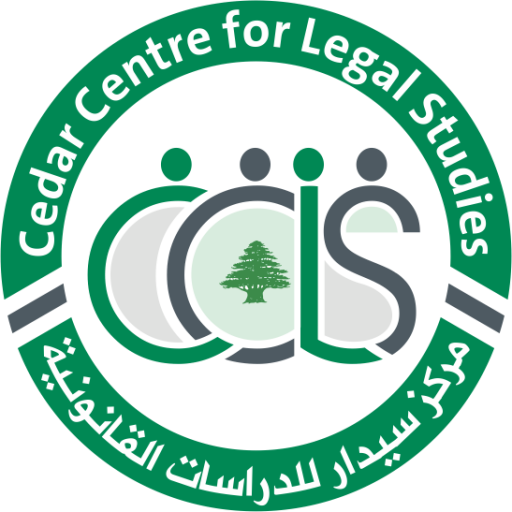Case Study: Enforced Disappearance and Torture of Syrian Refugee Ali Abd Al Nabi
Background
Ali Abd Al Nabi, a Syrian refugee born on 9 November 1991 in Damascus, lived in Beqaa, Lebanon, with his wife and two children. On 19 September 2025, he attempted to return to Syria under the UN-supported refugee return plan, designed to ensure voluntary, safe, and dignified returns.
At the Masnaa border crossing between Lebanon and Syria, Lebanese General Security (GSO) arrested Ali on the pretext of a “similarity of names.” It was later discovered that an arrest warrant had been issued against him in 2022 for alleged affiliation with a Syrian opposition faction. Despite his legal participation in the UN return plan, he was detained arbitrarily and without official notification to his family or legal representatives.
Following his arrest, he was transferred between multiple detention centers — Zahle, Beirut, Rihaniyeh, Ablah, and the Military Police — without due process or judicial oversight. During these transfers, Ali was repeatedly interrogated, beaten, and subjected to severe physical and psychological abuse. He was slapped, kicked, and struck with batons while being insulted and humiliated on the basis of his Syrian nationality. The interrogations were carried out without the presence of a lawyer, in clear violation of his rights under Article 47 of the Lebanese Code of Criminal Procedure.
Despite the absence of any evidence linking him to criminal activity, and with the charges based solely on name similarity, he remained in unlawful detention until 26 September 2025, when he was handed over to Syrian authorities.
Timeline
- 19 September 2025: Arrested by Lebanese General Security at the Masnaa border crossing while participating in the UN refugee return plan.
- 19–25 September 2025: Transferred between Zahle, Beirut, Rihaniyeh, Ablah, and the Military Police detention centers. Subjected to repeated interrogations accompanied by beatings and verbal abuse targeting his Syrian origin.
- 23 September 2025: Family informed informally that he was being held at Rihaniyeh Military Prison under Military Police control.
- 25 September 2025: CCLS inquired at Rihaniyeh Military Police and the Ministry of Defence Prison in Yarze — both denied his detention.
- 25 September 2025: Family informed informally that he had been transferred to General Security in Zahle. CCLS inquired with the General Directorate of General Security in Beirut — detention again denied.
- 26 September 2025: ACHR alerted UNHCR in Beirut about the case.
- 26 September 2025: CCLS and ACHR jointly submitted an urgent appeal to the UN Working Group on Enforced or Involuntary Disappearances (WGEID).
- 26 September 2025: The refugee was handed over to Syrian authorities, who later released him.
- 1 October 2025: Ali reported being interrogated repeatedly, beaten, and subjected to insults related to his Syrian nationality, despite the charges being based only on name similarity and no evidence found against him.
Legal Framework and Violations
Law No. 105/2018 on the Missing and Forcibly Disappeared
Lebanon’s Law 105 criminalizes enforced disappearance and affirms the right of families to know the fate and whereabouts of detained persons. The denial of custody and concealment of Ali’s location by multiple Lebanese authorities constitute a clear breach of this law and of Lebanon’s obligations under international conventions, including the International Convention for the Protection of All Persons from Enforced Disappearance.
Law No. 65/2017 on the Punishment of Torture and Other Cruel, Inhuman or Degrading Treatment or Punishment
Adopted in 2017, Law No. 65 prohibits torture in all its forms and holds state officials criminally accountable for such acts. The law also mandates that any confession extracted under torture be deemed null and void.
In Ali Abd Al Nabi’s case, the physical assaults, verbal insults, and psychological intimidation inflicted by security officers during his detention constitute acts of torture and cruel, inhuman, or degrading treatment as defined under both Law 65/2017 and the UN Convention Against Torture (CAT). His treatment was not only punitive but discriminatory, as he was targeted for being Syrian.
Moreover, his denial of access to legal counsel, lack of medical examination, and failure to notify his family represent a systematic violation of the safeguards intended to prevent torture, as outlined in Article 47 of the Code of Criminal Procedure.
Human Rights Concerns
- Enforced Disappearance: Denial of custody and concealment of location meet the definition of enforced disappearance under Lebanese and international law.
- Torture and Ill-Treatment: Beatings, verbal humiliation, and psychological intimidation amount to torture under Law 65/2017 and CAT.
- Denial of Due Process: Interrogations conducted without legal representation contravene Article 47 of the Lebanese Code of Criminal Procedure.
- Psychological Harm: His ongoing trauma and fear highlight the long-lasting mental health consequences of arbitrary detention and torture.
Joint Submission to the UN
On 26 September 2025, CCLS and ACHR jointly submitted this case as an urgent appeal to the UN Working Group on Enforced or Involuntary Disappearances (WGEID), urging Lebanese authorities to:
- Disclose the details of Ali Abd Al Nabi’s detention and treatment,
- Investigate and hold accountable those responsible for his torture, and
- Ensure compliance with Law 105/2018, Law 65/2017, and international human rights obligations.
Recommendations
- Immediate investigation into acts of torture and enforced disappearance committed against Ali Abd Al Nabi.
- Accountability for General Security and Military Police officers responsible for violations of Law 65/2017 and Law 105/2018.
- Rehabilitation and psychological support for the victim in line with Article 14 of the UN Convention Against Torture.
- Strict enforcement of procedural safeguards under Article 47 to prevent further cases of torture and arbitrary detention.
- Strengthened monitoring mechanisms to ensure Syrian refugees are not subjected to arrest, disappearance.
